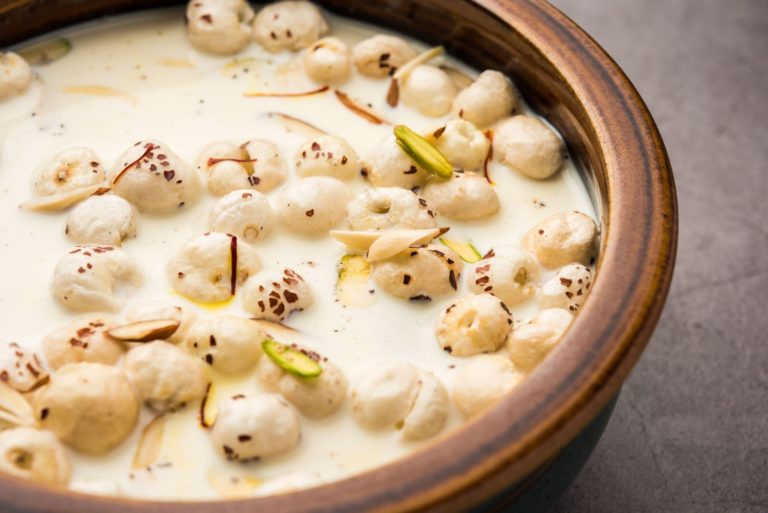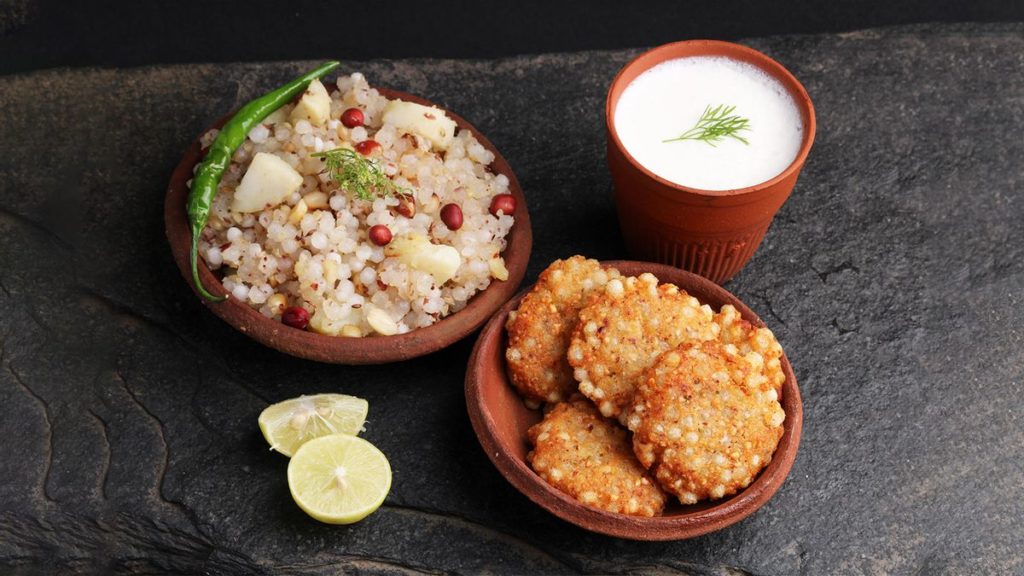- General
- Updated on July 28, 2025
The Role of Fasting in Hindu Rituals and Festivals

Introduction
Fasting holds a sacred and profound place in Hindu culture, deeply woven into its rituals, festivals, and spiritual practices. Far beyond a mere dietary restriction, fasting in Hinduism serves as a powerful tool for purification, self-discipline, and devotion. It reflects the intricate relationship between body, mind, and spirit—a connection Hindu philosophy encourages believers to nurture for holistic well-being.
In this blog, we explore the essential role fasting plays in Hindu rituals and festivals, its spiritual significance, and how it shapes the religious experience of millions.
Understanding Fasting in Hinduism

Fasting, or upavasa in Sanskrit, literally means “sitting close to” the divine through abstinence from food, drink, or specific foods. Hindu fasting varies widely—from partial fasts where certain foods are avoided, to complete fasts where no food or water is consumed for a specific period.
This practice is not just about physical restraint but also about achieving mental clarity, spiritual growth, and discipline. It is believed that fasting helps purify the body, calm the mind, and prepare the devotee for prayer and connection with the divine.
Spiritual Significance of Fasting
In Hinduism, fasting (upavasa) is much more than a physical act—it’s a deeply symbolic gesture of surrender, faith, and inner transformation. Choosing to abstain from food, one of the most fundamental human needs, is a powerful way for devotees to detach from worldly cravings and reorient their focus toward spiritual goals. This voluntary renunciation is seen as a demonstration of self-control, humility, and devotion, reinforcing the idea that the spirit must govern the senses—not the other way around.
Fasting serves as a bridge between the material and the spiritual realms. By minimizing physical consumption, practitioners conserve their vital energy (prana), which can then be channeled into deeper practices like prayer, chanting, meditation, and scriptural study. This redirection of energy fosters heightened awareness and clarity, creating an ideal inner environment for divine connection. It is during these fasts that many devotees report experiencing a sense of peace, introspection, and emotional cleansing—qualities essential for spiritual growth.
Moreover, fasting is also believed to attract divine grace. Many Hindus undertake fasts with specific intentions—whether to seek blessings, overcome personal struggles, or simply to express gratitude. The act of fasting becomes both a personal offering and a spiritual discipline, enriching the soul and reaffirming one’s place on the path of dharma.
Fasting in Hindu Rituals
Many Hindu rituals incorporate fasting as a preparatory or integral step. For example:
- Before Puja (Worship): Devotees often fast before performing puja to purify the body and mind, ensuring they approach the deity with reverence and focus.
- During Yagnas and Homas: Fasting before fire rituals is common to maintain sanctity and enhance the ritual’s spiritual efficacy.
- Rites of Passage: In ceremonies like Upanayana (sacred thread ceremony) or Vivaha (wedding), fasting may be observed to purify participants and invite divine blessings.
In these rituals, fasting symbolizes respect for the sacredness of the event and the desire for spiritual elevation.
Fasting During Hindu Festivals
Many Hindu festivals center around fasting as a way to honor specific deities, commemorate mythological events, or express gratitude. Some of the most notable fasting festivals include:
1. Navratri
Celebrated twice a year, Navratri honors Goddess Durga and her nine forms. Devotees fast for nine days, abstaining from grains, meat, and certain spices. The fast is a symbol of purification and strength, reflecting Durga’s victory over evil.
2. Ekadashi
Observed twice monthly on the 11th day of each lunar fortnight, Ekadashi fasting is dedicated to Lord Vishnu. Devotees avoid grains and beans, and some fast completely. It is believed to cleanse sins and promote spiritual progress.
3. Karva Chauth
A fasting ritual performed by married Hindu women for their husbands’ longevity and well-being. Women fast from sunrise to moonrise, often breaking their fast only after sighting the moon and performing prayers.
4. Shravan Maas
The entire month of Shravan (July-August) is considered auspicious. Many observe partial or full fasts on Mondays or specific days, honoring Lord Shiva. This fasting is seen as a way to gain Shiva’s blessings for health and prosperity.
5. Maha Shivaratri
On this night dedicated to Lord Shiva, devotees fast throughout the day and night, engaging in prayer and meditation. The fast symbolizes overcoming ignorance and attaining spiritual wisdom.
Health and Psychological Benefits
While the core intent of fasting in Hinduism revolves around spiritual growth and devotion, the practice also offers several physical and psychological benefits that contribute to overall well-being. These side benefits help explain why fasting has endured for millennia—not just as a religious act, but as a holistic health ritual embedded in cultural life.
1. Detoxification
When we fast, the body gets a much-needed break from the constant process of digestion. This rest period enables the body to redirect energy toward repair and cleansing. The result is often a natural detoxification process, where accumulated toxins are flushed out, supporting liver function, metabolism, and immune health.
2. Mental Clarity
Fasting can have a calming effect on the mind. With the digestive system at rest and energy more evenly distributed, many people report experiencing sharper concentration, improved memory, and a deeper sense of mental peace. This clarity is especially helpful for spiritual practices like meditation, chanting, and introspection.
3. Discipline and Self-Control
Abstaining from food—even temporarily—requires strong willpower. Regular fasting builds mental resilience, strengthens self-discipline, and fosters patience. It teaches the practitioner to remain composed in the face of desire, a principle that translates into other areas of life such as work, relationships, and emotional regulation.
4. Community and Tradition
Many Hindu fasts are observed collectively—during festivals like Maha Shivaratri, Navratri, or Ekadashi. These shared rituals bring families and communities together, reinforcing a collective cultural identity. Observing fasts with others strengthens social bonds and provides a sense of belonging and shared purpose.
In this way, Hindu fasting serves not only as a tool for spiritual refinement but also as a time-tested method for nurturing body, mind, and community spirit.
Adaptations and Considerations
In today’s fast-paced and health-conscious world, traditional fasting practices are increasingly being tailored to suit individual needs and contemporary lifestyles. While the spiritual foundation remains intact, many people now approach fasting with a blend of religious observance and health awareness, ensuring that the practice is sustainable and beneficial.
1. Personalized Approaches:
Rather than adhering strictly to traditional rules, many modern practitioners adopt variations such as intermittent fasting—where eating is confined to specific time windows—or modify food restrictions to include nutrient-rich, light meals that honor the essence of the fast. For example, instead of complete abstinence from food, some may opt for fruit-only diets, liquids, or sattvic meals (pure, simple vegetarian food) during religious fasts. This flexibility allows individuals to maintain spiritual discipline without compromising physical well-being.
2. Mindful Fasting
The modern approach places strong emphasis on mindfulness. Fasting is not seen as a punishment or deprivation, but as a conscious choice to nourish the soul while being attentive to the body’s signals. Practicing mindfulness during a fast means understanding when to pause, when to continue, and how to adjust based on one’s energy levels and emotional state.
3. Health Considerations
It’s essential to recognize that not all bodies respond to fasting the same way. Those with medical conditions such as diabetes, low blood pressure, or gastrointestinal issues should be especially cautious. Prolonged fasting without proper supervision may lead to fatigue, dehydration, or nutritional imbalances. Consulting a healthcare provider or nutritionist can help determine a safe and appropriate fasting plan, particularly for individuals with existing health concerns.
4. Respect for Tradition and Self
Ultimately, the goal of fasting—whether traditional or modern—is to create space for inner clarity, devotion, and discipline. By respecting both religious intentions and personal health boundaries, today’s practitioners can preserve the sanctity of fasting while adapting it to modern sensibilities. This thoughtful balance keeps the practice relevant, meaningful, and inclusive for people from all walks of life.
Also Read: Meaning of 108 in Hinduism | Scientific Facts
Conclusion
Fasting in Hindu rituals and festivals is a profound expression of devotion, discipline, and spiritual aspiration. It bridges the physical and metaphysical, allowing practitioners to transcend everyday desires and connect with the divine.
Whether through the intense nine-day fast of Navratri or the monthly Ekadashi observances, fasting remains a vibrant, meaningful tradition that enriches Hindu spirituality and community life. In its essence, fasting is a journey inward—toward purity, focus, and divine communion.
Join the discussion
Related Articles
No results available
ResetTrending Articles


- General
- Updated on December 5, 2025


- General
- Updated on December 2, 2025


- General
- Updated on December 5, 2025


- General
- Updated on November 27, 2025


- Health
- Updated on November 24, 2025


- General
- Updated on November 24, 2025


- General
- Updated on November 19, 2025


- General
- Updated on November 19, 2025


- General
- Updated on November 14, 2025


- Tech
- Updated on November 12, 2025
No results available
Reset


